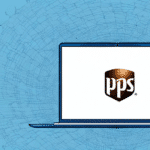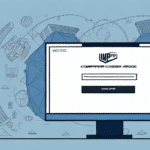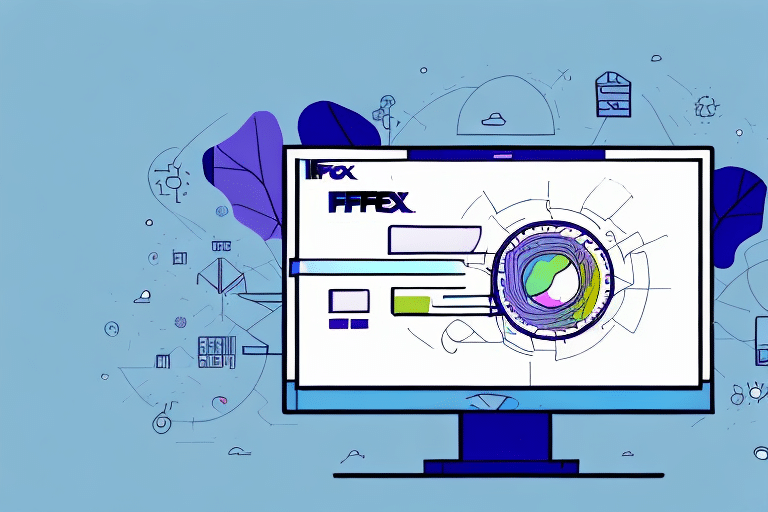Comprehensive Guide to UPS WorldShip 11
UPS WorldShip 11 remains a robust shipping solution for businesses aiming to manage their logistics seamlessly. Despite being an older version, it offers a range of features tailored to streamline shipping processes, from installation to advanced functionalities. This guide provides an in-depth analysis of UPS WorldShip 11, highlighting its advantages, potential drawbacks, and best practices to maximize its effectiveness in today’s competitive market.
Introduction to UPS WorldShip 11
UPS WorldShip 11 is a desktop application developed by UPS to automate shipping processes for businesses with high shipping volumes. Designed for both brick-and-mortar and e-commerce enterprises, it centralizes all shipping needs, enabling efficient management of packages from initiation to delivery.
One of the standout features of UPS WorldShip 11 is its real-time tracking capability, which allows businesses to monitor shipments continuously. This proactive tracking can identify potential delays or issues, enabling timely interventions to maintain customer satisfaction.
Additionally, the software offers extensive customization options, including the creation of tailored shipping labels, packing slips, and invoices. Such customization ensures that shipments reflect a company’s branding, enhancing professional presentation and consistency.
Key Features and Benefits
Shipping Management
UPS WorldShip 11 facilitates comprehensive shipping management, allowing users to create, track, and manage shipments efficiently. It supports importing and exporting data in various formats like CSV and Excel, simplifying data handling and integration with other systems.
Label and Document Printing
The software enables the printing of customized shipping labels, packing slips, and invoices. Users can tailor these documents to include specific branding elements, ensuring consistency across all shipments.
Real-Time Tracking and Reporting
With real-time tracking, businesses can monitor the status of their packages at every stage of the delivery process. The reporting and analytics features provide valuable insights into shipping volumes, costs, and performance metrics, aiding in informed decision-making.
System Integration
UPS WorldShip 11 integrates seamlessly with various business systems, including accounting software and Customer Relationship Management (CRM) tools. This integration reduces the need for manual data entry, minimizes errors, and enhances overall operational efficiency.
Installation and Setup
System Requirements
Before installing UPS WorldShip 11, ensure that your computer meets the minimum system requirements:
- Windows operating system
- At least 4GB of RAM
- Minimum of 2GB of free hard drive space
- Compatible thermal label printer (if applicable)
Installation Process
Download the installer from the official UPS website and follow the step-by-step instructions provided. During setup, input your business details and UPS account information to configure the software for your shipping needs.
Refer to the WorldShip 11 User Guide for detailed setup instructions and troubleshooting tips.
User Interface Overview
Upon launching UPS WorldShip 11, users are greeted with an intuitive interface designed for ease of navigation. The main menu provides access to all primary features, including shipment creation, label printing, and report generation. A toolbar offers quick access to frequently used functions, enhancing workflow efficiency.
Customization Options
Users can personalize the interface by adjusting font sizes, color schemes, and layout preferences. These adjustments cater to individual user needs, promoting a comfortable and efficient working environment.
Keyboard Shortcuts
UPS WorldShip 11 supports various keyboard shortcuts to expedite common tasks. For example, pressing Ctrl + N creates a new shipment, while Ctrl + T initiates a package tracking process. Utilizing these shortcuts can significantly enhance productivity.
Managing Shipments and Customer Information
Creating Shipments
To create a shipment, select the "Create a Shipment" option and input the recipient’s address, shipping preferences, and other necessary details. Frequently used addresses can be saved for quicker future access, streamlining the shipping process.
Customer Data Management
UPS WorldShip 11 allows businesses to import customer data from formats like CSV and Excel or add new records manually. Customers can be grouped based on criteria such as geographical location or purchasing behavior, facilitating targeted shipping strategies.
Customization of Shipping Preferences
Shipping preferences can be tailored for each customer, including preferred carriers, delivery speeds, and packaging types. This customization ensures that shipments align with individual customer needs, enhancing service quality and satisfaction.
Reporting and Analytics
UPS WorldShip 11 offers a suite of reporting tools that provide insights into shipping operations. Users can generate reports on shipping volumes, costs, delivery times, and more, enabling data-driven decisions to optimize logistics.
Custom Reports
Businesses can create custom reports by selecting specific data fields and applying filters to focus on particular aspects of their shipping operations. These tailored reports help identify areas for improvement and monitor the effectiveness of implemented strategies.
Performance Metrics
Tracking key performance indicators (KPIs) such as on-time delivery rates and shipping costs per package helps businesses assess their logistics performance and identify opportunities for cost savings and efficiency enhancements.
Troubleshooting and Support
Common Issues
Users may encounter issues like printing malfunctions, connection problems with carriers, or software bugs. Addressing these typically involves consulting the user manual, checking system compatibility, or reaching out to UPS Customer Support for assistance.
Data Import/Export Challenges
Issues with importing or exporting data often stem from incorrect formatting or compatibility problems with other software. Ensuring data adheres to required formats and utilizing supported file types can mitigate these challenges. For persistent issues, contacting UPS support is recommended.
Upgrading and Alternative Solutions
Considering an Upgrade
While UPS WorldShip 11 is a reliable tool, newer versions or alternative shipping solutions may offer enhanced features such as cloud-based access, improved integrations, and advanced analytics. Upgrading can provide better support for evolving business needs and technological advancements.
Comparative Analysis
Alternatives to UPS WorldShip 11 include solutions like ShipStation, EasyPost, and Shippo. These platforms offer features such as multi-carrier shipping, real-time tracking, and more intuitive user interfaces, which may better suit modern business requirements.
When selecting a shipping solution, consider factors like integration capabilities, scalability, cost, and the specific needs of your business to choose the most appropriate tool.
Best Practices for Optimizing Shipping with UPS WorldShip 11
Automated Workflows
Setting up automated workflows can significantly reduce manual tasks, minimize errors, and enhance overall efficiency. Automations may include batch processing of shipments, automated label printing, and scheduled report generation.
Regular Data Maintenance
Keeping customer and shipment data up-to-date is crucial for accurate shipping operations. Regularly updating customer information, shipping preferences, and addressing any data discrepancies ensures smooth and efficient logistics management.
Utilizing Reporting Tools
Leveraging the reporting and analytics features of UPS WorldShip 11 allows businesses to monitor performance, identify trends, and make informed decisions to optimize shipping strategies and reduce costs.
Advanced Tips for Experienced Users
Customizing Printing Presets
Experienced users can create and customize printing presets to automate label and document generation, saving time and ensuring consistency across all shipments.
Batch Processing Shipments
Utilizing batch processing for large volumes of shipments can significantly expedite the shipping process, reducing manual input and increasing throughput.
Maximizing Keyboard Shortcuts
Incorporating keyboard shortcuts into daily workflows can enhance efficiency by allowing users to perform frequent tasks quickly without navigating through multiple menus.
Conclusion: Evaluating the Relevance of UPS WorldShip 11 Today
UPS WorldShip 11 continues to be a valuable tool for businesses managing substantial shipping operations. Its comprehensive feature set, combined with user-friendly interfaces and robust customization options, make it a solid choice for many enterprises. However, as shipping technologies evolve, businesses should assess whether upgrading to newer solutions or exploring alternative platforms aligns better with their growth and operational requirements.
By leveraging the strengths of UPS WorldShip 11 and adhering to best practices, businesses can maintain efficient and effective shipping operations, ultimately contributing to enhanced customer satisfaction and operational success.






















